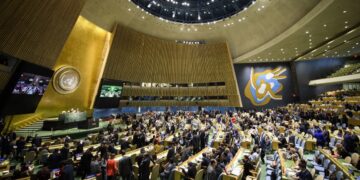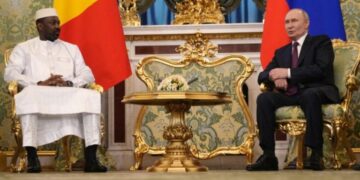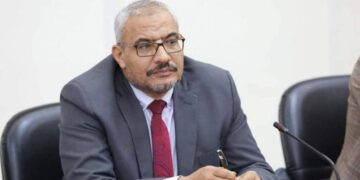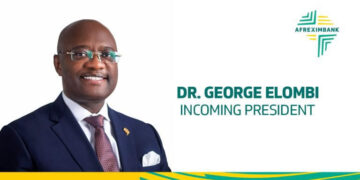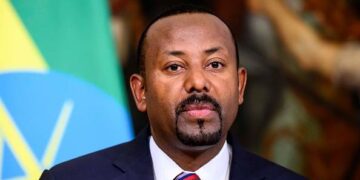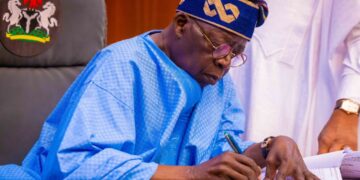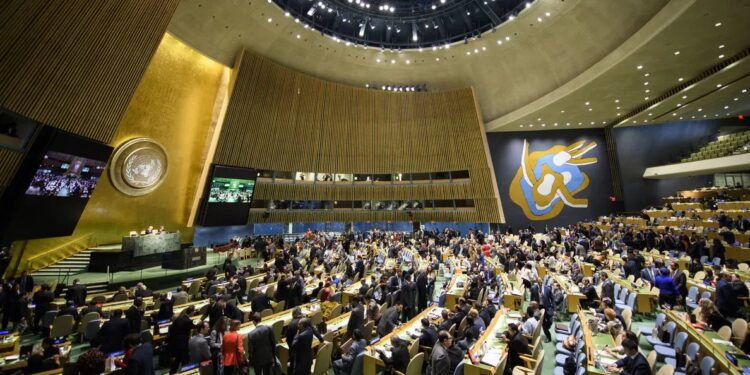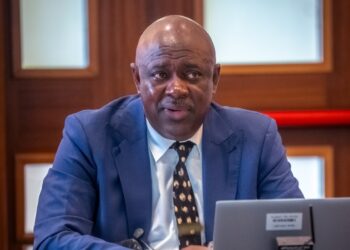By John Ikani
World leaders have endorsed the Pact for the Future, a groundbreaking commitment that outlines specific steps to create a more secure, peaceful, sustainable, and inclusive future for the next generations.
The agreement was made during the two-day Summit of the Future, which took place as part of the 79th session of the UN General Assembly (UNGA 79) High-level Week, held in New York.
UNGA 79 officially commenced on September 10, 2024, with the High-Level Week starting on Friday and continuing until September 27.
The Pact and its accompanying documents—namely the Global Digital Compact and the Declaration on Future Generations—were approved unanimously, despite an eleventh-hour attempt by some states, including Russia, Iran, North Korea, and Syria, to introduce changes.
These countries proposed revisions that would emphasize non-interference in internal affairs and prioritize intergovernmental talks over the voices of civil society and private sector involvement.
The proposal was ultimately discarded after the Assembly, comprising 193 members, chose not to take action on the suggested amendment.
The Pact centers on five key themes: sustainable development, global peace and security, science and technology, future generations and youth, and overhauling global governance systems.
The agreement is seen as an essential shift, as global financial institutions and even the United Nations have fallen short in addressing the complex challenges of the 21st century.
The Global Digital Compact represents a historic worldwide accord on regulating artificial intelligence (AI), founded on the principle that technological advancements should serve the entire global population.
It includes pledges to leverage digital tools in a way that advances human rights and sustainable development while tackling issues such as digital inequality, cybersecurity, and the misuse of technology.
One of its goals is to narrow the digital gap and promote responsible AI usage, urging countries to collaborate on improving both AI’s capabilities and addressing associated security risks. It also mandates the creation of an unbiased global Scientific Panel on AI and a UN-led dialogue on AI governance.
The Declaration on Future Generations aims to safeguard the welfare of those yet to be born, advocating for their interests to be taken into account in today’s decision-making processes.
It highlights the critical need for environmental preservation, fair treatment across generations, and considering the long-term effects of current actions.
Following the adoption of the Pact, UN Secretary-General Antonio Guterres remarked that the agreement and its annexes, “open pathways to new possibilities and opportunities.”
“People everywhere are hoping for a future of peace, dignity, and prosperity.
“They are crying out for global action to solve the climate crisis, tackle inequality, and address new and emerging risks that threaten everyone,” he said.
“They see the United Nations as essential to solving these challenges,” he continued, adding, “The Summit of the Future sets a course for international cooperation that can meet their expectations … now, let’s get to work.”
The agreement’s adoption capped several months of negotiations, which were spearheaded by Germany and Namibia.
Philémon Yang, President of the 79th General Assembly, urged member states to move forward together with unity, emphasizing cooperation and solidarity.
“The path we choose must lead to a future where human dignity is respected and human rights are upheld. A future where peace transcends the mere absence of conflict and is grounded in justice, inclusion, and equity.”
By endorsing the Pact, UN member nations reaffirmed their commitment to accelerating progress on the Sustainable Development Goals (SDGs) and the Paris Climate Agreement, two major 2015 initiatives that have faced difficulties in meeting their objectives.
In a related development, Nigeria’s Minister of Foreign Affairs, Yusuf Tuggar, urged the global community to provide greater support to help Africa overcome regional financial barriers in achieving the SDG targets.
He praised the strong backing from countries in the global South for the 2030 Agenda for SDGs, while calling for concrete actions to overcome barriers to progress.
Tuggar noted, “This is especially important in Africa, where economies are most vulnerable due to historical imbalances in the international multilateral system.
“The SDG Index estimates that only about 16 per cent of SDG targets are on track to be achieved. We must, therefore, ensure today’s adoption of Pact for the Future is backed by willingness to fulfil outstanding commitments.
“With the remaining 84 per cent of the SDG targets for 2030 yet to be achieved, countries in the global North must do more to support sustainable development in the global South.
“We are optimistic these targets can be met, if commitments are backed by action. However, in the event we fall short of achieving the SDG targets by 2030, the deadline should be extended.
“The collective resolve and support of the international community could help Africa tackle regional challenges, particularly with regard to sustainable financing for the SDG implementation.”
Tuggar further emphasized the importance of implementing actionable steps to reform the UN Security Council, advocating for a permanent seat for Africa.
